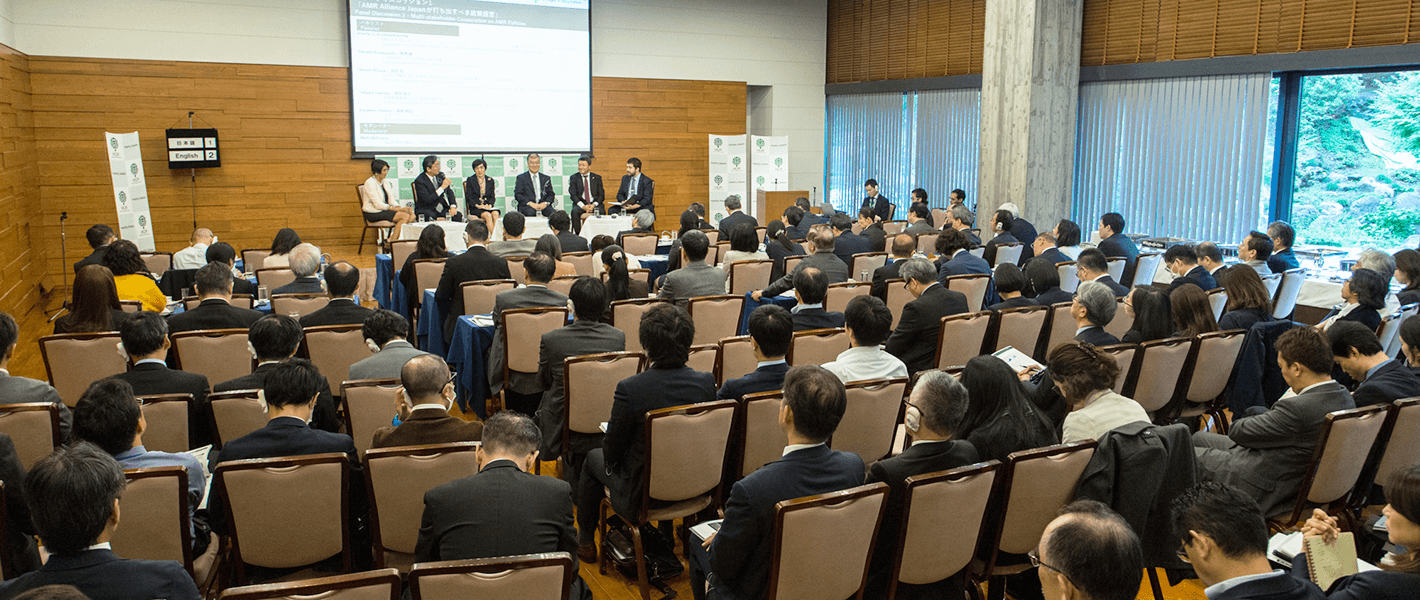[Policy Recommendations] Recommendation for the Basic Policy on Economic and Fiscal Management and Reform 2024 (June 11, 2024)
- Home >
- Information >
- News >
- [Policy Recommendations] Recommendation for the Basic Policy on Economic and Fiscal Management and Reform 2024 (June 11, 2024)
On June 11, 2024, AMR Alliance Japan (Secretariat: Health and Global Policy Institute) released “Recommendation for the Basic Policy on Economic and Fiscal Management and Reform 2024” to promote infectious disease control measures combat antimicrobial resistance (AMR). The content of the recommendations was as follows.
In addressing antimicrobial resistance, in addition to promoting the One Health Approach, Japan should promote discussion on and implement steps to secure the supply of therapeutics as well as encourage research and development through market incentives, through collaboration among industry, academia, government, and citizens. These measures will contribute to national security, including the economy, and help establish Japan as a global leader.
In February 2022, British medical journal The Lancet reported that in 2019, an estimated 1.27 million deaths worldwide were directly caused by antimicrobial resistance (AMR). This was higher than the number of deaths from HIV and AIDS or malaria. In Japan, it is estimated that about 8,000 lives are lost every year due to AMR bacteria. However, this figure is based on just two strains of AMR bacteria, and the true scale of damage from AMR is thought to be enormous. Against this backdrop, progress is now being made both in Japan and around the world in measures to combat AMR.
On the global level, in October 2022, the Quadripartite (which includes the Food and Agriculture Organization (FAO), the United Nations Environment Programme (UNEP), the World Health Organization (WHO), and the World Organisation for Animal Health (WOAH)) presented the One Health Joint Plan of Action (OH JPA) for the five years from 2022 to 2026. AMR control was also brought up in G7 leaders’ declarations and G7 ministerial statements, which mentioned measures such as surveillance and inspection based on the One Health approach, restoring a sound market for antimicrobials by providing predictable and sustainable incentives, and engaging in human resource development, including for researchers.
In Japan, the Basic Policy on Economic and Fiscal Management and Reform has clearly outlined the importance of AMR control every year since 2016, when it mentioned “strengthening efforts to promote AMR control and expanding systems for research, testing, and treatment.” Particularly, the importance of AMR control was made much clearer in the 2023 version of the Basic Policy, which stated, “In addition to promoting the One Health Approach, in measures designed to counter drug resistance, Japan will promote domestic measures such as securing therapeutic drugs through market incentives, as well as research and development through international collaborations and industry-academia-government collaboration.” There is strong recognition toward the importance of comprehensive innovation in all areas of diagnosis, treatment, and prevention, which includes maintaining and reinforcing a sustainable, stable supply chain for antimicrobials, with collaboration among industry, academia, government, and citizens. Such measures also contribute to both economic and health security.
Infectious disease control cannot be fully implemented by countries acting alone. Japan has served as a leader in advancing the global health agenda, including in its role as G7 President in 2023. Looking ahead to the 79th session of the UN General Assembly (UNGA 79) in 2024 and beyond, it will also be critical for Japan to fulfill its commitments to the international community to address AMR.


